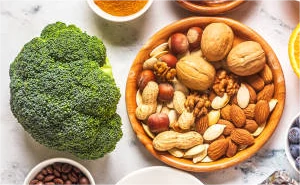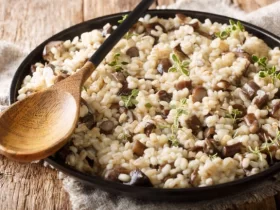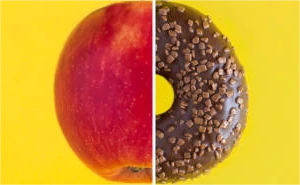In the hustle and bustle of modern life, it’s easy to overlook the profound impact our dietary choices have on our mental well-being. Yet, emerging research continues to shed light on the intricate connection between what we eat and how we feel. As we delve deeper into the realm of nutritional psychiatry, we uncover the pivotal role of food in shaping our mood and mental health.
At the heart of this connection lies the gut-brain axis, a complex communication network linking the gastrointestinal tract to the brain. This bidirectional pathway facilitates constant communication between the gut and the brain, influencing various aspects of our cognition and emotional state. Remarkably, the gut houses a vast ecosystem of microorganisms, collectively known as the gut microbiota, which play a pivotal role in this dynamic interplay.
Recent studies have revealed that the composition of our gut microbiota can significantly impact our mood and behavior. A flourishing microbial community, nurtured by a diet rich in fiber, fruits, vegetables, and fermented foods, has been associated with improved mental well-being. On the contrary, a diet high in processed foods, saturated fats, and sugars may disrupt the delicate balance of gut bacteria, potentially contributing to mood disorders such as depression and anxiety.

So, what exactly should we be eating to support a positive mood and optimal mental health? Let’s explore some key dietary components that have been shown to promote emotional well-being:
- Omega-3 Fatty Acids:Found abundantly in fatty fish like salmon, mackerel, and sardines, as well as in walnuts, flaxseeds, and chia seeds, omega-3 fatty acids are renowned for their anti-inflammatory properties and their role in brain health. Studies suggest that omega-3 supplementation may help alleviate symptoms of depression and anxiety.
- Whole Grains:Complex carbohydrates found in whole grains like oats, quinoa, and brown rice provide a steady release of glucose into the bloodstream, promoting stable energy levels and mood regulation. Additionally, whole grains are rich in fiber, which supports a healthy gut microbiota.
- Leafy Greens:Spinach, kale, and other leafy greens are packed with vitamins, minerals, and phytonutrients that nourish both body and mind. These nutrient-dense foods are particularly rich in folate, a B-vitamin that plays a crucial role in neurotransmitter synthesis.
- Probiotic-Rich Foods:Cultured dairy products like yogurt, kefir, and fermented vegetables like kimchi and sauerkraut are excellent sources of probiotics, beneficial bacteria that promote gut health. By supporting a diverse and resilient microbiome, probiotics may positively influence mood and reduce symptoms of anxiety and depression.
- Antioxidant-Rich Foods: Vibrant fruits and vegetables, such as berries, citrus fruits, and bell peppers, are packed with antioxidants that help combat oxidative stress and inflammation in the body. Emerging evidence suggests that a diet high in antioxidants may protect against mood disorders and cognitive decline.

In addition to incorporating these mood-boosting foods into your diet, it’s essential to prioritize overall dietary patterns that emphasize whole, minimally processed foods while minimizing the intake of refined sugars, trans fats, and artificial additives. Remember, nourishing your body with wholesome foods not only supports physical health but also fosters resilience and vitality from within.
The connection between food and mood is profound and multifaceted, with the gut-brain axis serving as a crucial mediator. By adopting a diet rich in omega-3 fatty acids, whole grains, leafy greens, probiotic-rich foods, and antioxidants, you can nourish your mind and cultivate a positive outlook on life. Let food be thy medicine, and let nourishment be thy guide to lasting well-being.
If you want more information on food and recipes, keep following us: https://www.bygoody.com/














Leave a Reply